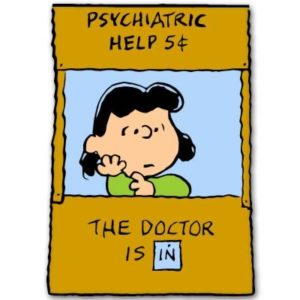Grief and Depression
Jun 06, 2018 by Victoria Noe, in depression
, Friend Grief
, Friendship
, Grief
, suicide
, survivor guilt
 My late father used to say that there should be a psychiatrist on every corner and they should be free.
My late father used to say that there should be a psychiatrist on every corner and they should be free.Wouldn’t that be nice?
To have easy access to mental health support and not have to worry about co-pays, referrals or limits on coverage?
Damn right it would be nice.
But would it be enough?
The death of handbag designer Kate Spade shocked her friends and fans. A privileged, talented, successful woman living on Park Avenue who suffered from depression and certainly was able to obtain quality mental health support died by suicide.
As with most of these deaths, we’ll never know what led her to that decision. While the family knew of her struggles, many friends are left recounting past conversations, searching for clues they missed. Even if they find them and forgive themselves, they will not feel much comfort.
Mental health is a frequent topic of conversation. It always comes up when there’s a mass shooting or other horrific attack. Today it’s about suicide and Kate Spade. But there’s a lot in between that goes unnoticed.
Does grief equal major depression? The symptoms of grief and major depression often overlap: sadness, sleep disturbance, loss of appetite, for example. They’re not the same thing, but they can be connected. Some professionals believe there should be a time limit on grief, and if it lasts too long, should be classified as depression.
I know people who insisted they were not depressed, though it was clear they were. Their grief - usually for a spouse - never abated, even years later. It was easier to consider themselves grieving, because to admit they were depressed brought baggage: therapy, medication, stigma.
Let’s face it: people are a lot nicer to you if you say you’re grieving than if you say you’re depressed. They probably won’t dismiss your grief out of hand as something to just get over. The same with anxiety or phobias: those who have never experienced them tend to minimize their power. But they can disrupt your life as surely as a broken bone or cancer.
That’s where stigma comes in, from others and ourselves. And it’s time to change that.
Imagine a world where going to your therapist was looked at the same way as going to your dentist: routine maintenance. If you need more work, you go more often, maybe see an orthodontist. But you don’t stop going. You go on a regular basis, to maintain your health, because you know if you don’t, you’ll pay the price. No one questions it or bullies you about it. It’s a non-issue.
That psychiatrist on the corner would be pretty busy, just like your dentist is busy. Friends wouldn’t feel guilty for not being able to save their friends from suicide or the emotional pain that sucked the joy from their lives. People who now suffer needlessly would get the help they deserve.
That’s not to say people wouldn’t be sad or angry, that they’d never grieve or feel despair. That’s not to say that they wouldn’t refuse to get help. But they’d know for sure that help was always there for them, no excuses. Unconditional help.
Something we all need.

